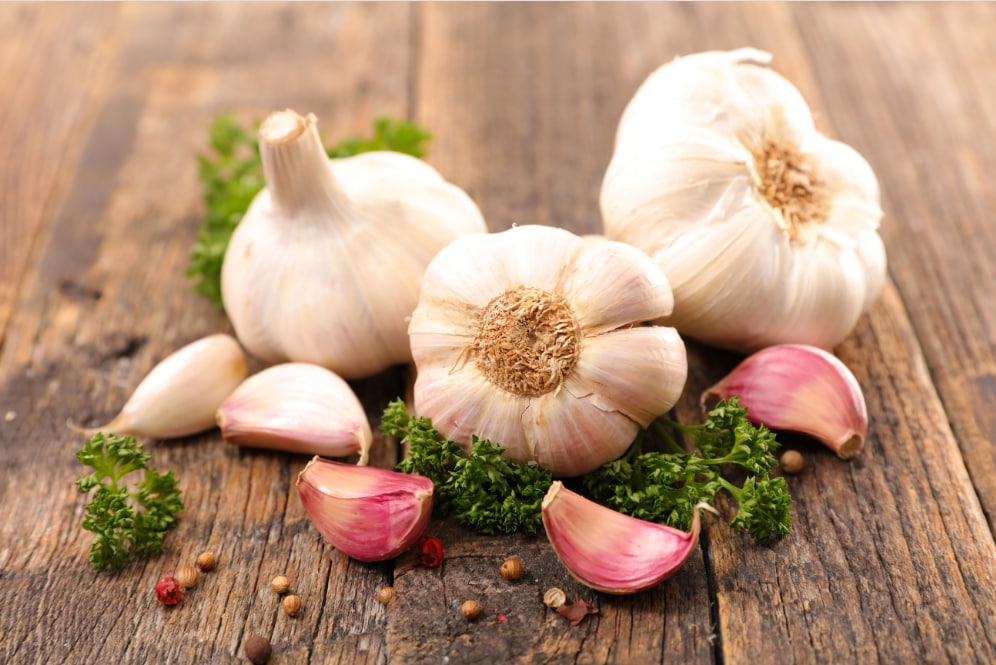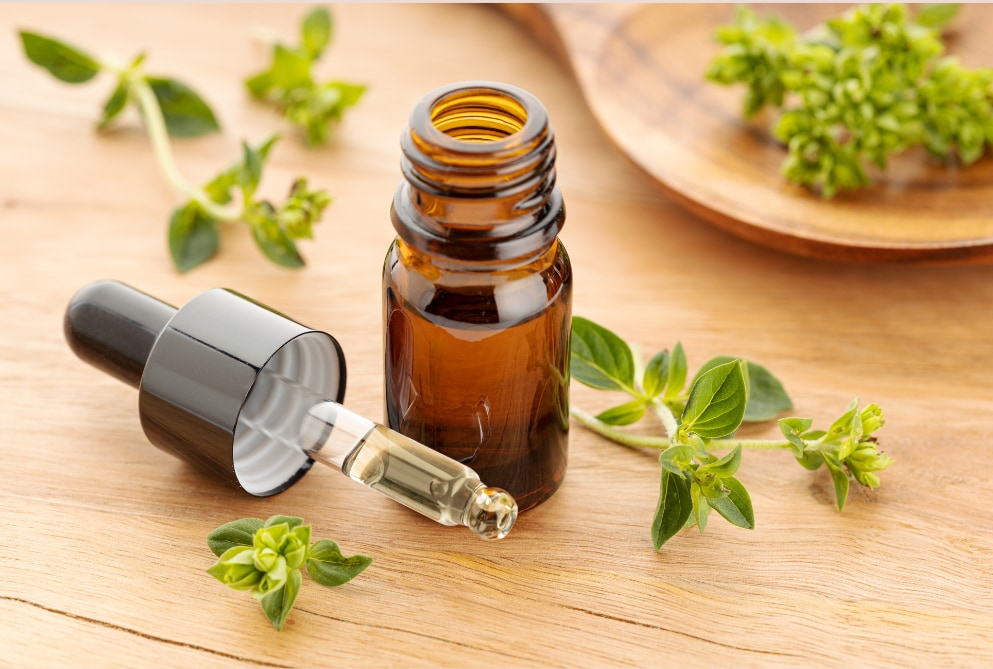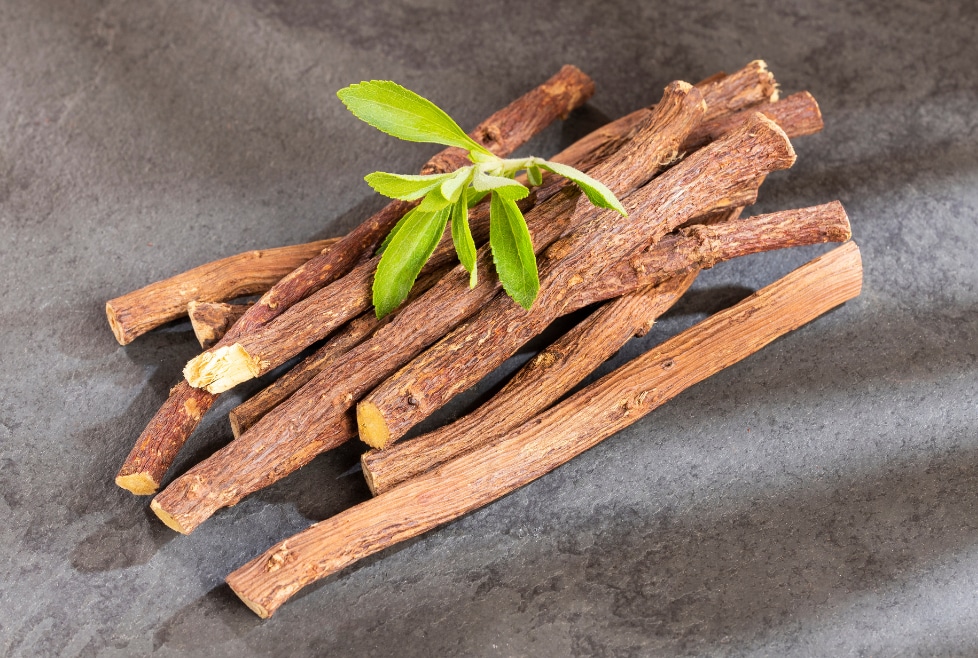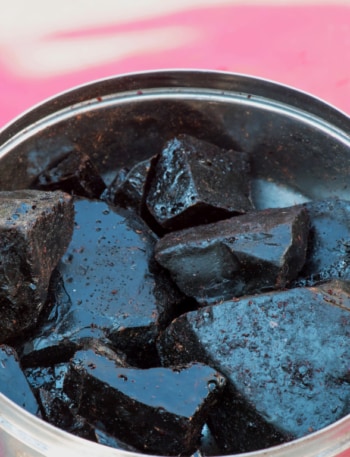Helicobacter pylori (H. pylori) is a microorganism that can lead to an infection in the stomach’s mucosal layer.
Traditional therapies such as antibiotics can lead to difficult side effects in certain individuals. These may include symptoms like vomiting, loose stools, and diminished hunger.
Some individuals do not respond to antibiotics, making it harder to treat the infection with conventional methods. This has led to an increased interest in alternative treatments for H. pylori. These alternatives can be used alongside standard, doctor-prescribed treatments.
It’s important to consult with your physician before starting a natural treatment plan. It’s crucial not to substitute your prescribed treatment for H. pylori with natural alternatives.
Continue reading to discover more about H. pylori and the potential natural remedies for its treatment.

More natural remedies:
- Shilajit: Evidence-Based Health Benefits and Safety
- Science-Backed Natural Remedies For Colds and Flu
- Science-Backed Alternative Medicines for Premenstrual Syndrome
What is Helicobacter pylori ?
Helicobacter pylori is a type of bacterium that primarily inhabits the stomach lining. It’s known for its role in various gastrointestinal conditions, including:
- Gastritis: Inflammation of the stomach lining.
- Peptic Ulcers: Open sores that can develop on the lining of the stomach or the upper part of the small intestine.
- Stomach Cancer: Long-term infection with H. pylori has been associated with an increased risk of certain types of stomach cancer.
H. pylori infections are quite prevalent, accounting for approximately 50% of bacterial infections in the United States. They are also widespread among children and adolescents, though studies indicate that the number of cases in adults is on the decline.

What are the symptoms of H. pylori infection?
Most individuals infected with H. pylori do not show any symptoms.
However, it’s believed that about 30% of those infected develop additional conditions like gastritis and peptic ulcers. This occurs because the bacteria can harm the stomach’s inner protective layer.
Symptoms of a peptic ulcer caused by H. pylori might include:
- Dull or burning pain in the stomach
- Feeling full quickly after beginning to eat
- Bloating
- Nausea
- Unexplained weight loss
- Vomiting
- Burping
Although it’s uncommon, H. pylori infections can increase your risk of stomach cancer due to ongoing inflammation from the infection. Some signs of stomach cancer include:
- Heartburn
- Acid reflux
- Indigestion
- Difficulty swallowing
- Loss of appetite
- Unexplained weight loss
- Discomfort or swelling in the belly
- Fatigue
It’s important to remember that many symptoms of stomach cancer, peptic ulcers, and other conditions linked to H. pylori can also be caused by other issues. If you have any concerning symptoms, consult a doctor.
When to seek urgent medical care?
You should seek urgent medical care if you have:
- Difficulty swallowing
- Anemia
- Blood in your stool
- Black-colored stool
- Vomiting
What leads to H. pylori infections?
The exact method of transmission for H. pylori infections is still not fully understood. The bacteria has been living alongside humans for thousands of years.
However, it’s believed that infections can be spread in several ways:
- Oral to oral: This can happen through saliva from one person’s mouth to another, for example, by kissing.
- Fecal to oral: This occurs when you come into contact with vomit or stool and do not wash your hands properly after using the bathroom.
- Contaminated water and food: Food and water can become contaminated with feces or other bacteria in unsanitary conditions.
Risk factors
Children are more susceptible to developing an H. pylori infection compared to adults, primarily because they might not always follow proper hygiene practices.
Your surroundings and living conditions can also play a role in your risk of contracting H. pylori, such as:
- Residing in a developing nation
- Lacking access to clean drinking water
- Sharing living spaces with others who have H. pylori
- Living in crowded areas
Diagnosis
If you experience symptoms related to digestive issues, it’s important to undergo testing for H. pylori. Various methods are available for diagnosing H. pylori, including:
- Urea breath test to detect unusual levels of carbon dioxide, indicating an H. pylori infection
- Stool test to look for H. pylori antigens
- Blood tests to check for H. pylori antibodies
- A healthcare provider might suggest an endoscopy if the other tests are inconclusive. This procedure allows for examination of the esophagus, stomach lining, and a section of the small intestine.
Complications
H. pylori infections can lead to peptic ulcers, which can escalate into more severe conditions. For instance:
- Internal bleeding may occur when a peptic ulcer penetrates the blood vessels, potentially leading to iron deficiency anemia.
- Obstruction might develop when an obstruction, such as a tumor, blocks the passage of food from the stomach.
- Perforation could happen when an ulcer breaches the stomach wall.
- Peritonitis, an infection of the peritoneum or the abdominal cavity lining, might develop.
- H. pylori can also increase the risk of gastric adenocarcinoma, a type of stomach cancer. A 2019 study revealed that this risk is higher among individuals who smoke, as well as those from African American, Hispanic, and Asian backgrounds.
However, it’s important to note that H. pylori rarely progresses to stomach cancer.
Treatment options
If your H. pylori infection is not causing any symptoms and you are not at an increased risk for stomach cancer, treatment may not be necessary.
A healthcare provider might recommend treatment if there is a family history of stomach cancer or stomach and duodenal ulcers. Treatment can cure an ulcer and reduce the risk of developing stomach cancer.
Treatment typically involves a combination of two antibiotics and one proton pump inhibitor (PPI), a treatment approach often referred to as triple therapy.
Antibiotics commonly used include:
- Clarithromycin
- Amoxicillin
- Proton pump inhibitors (PPIs) such as lansoprazole (Prevacid), esomeprazole (Nexium), pantoprazole (Protonix), or rabeprazole (AcipHex)
The duration of treatment may vary based on your medical history and any allergies you have to certain medications.
After completing treatment, a follow-up test for H. pylori is usually recommended. In most cases, a single round of antibiotics is sufficient to clear the infection. However, if this does not occur, additional medications may be necessary.
Natural remedies
Here are 12 natural remedies that have been shown to be effective based on studies.
Garlic

Garlic has been shown to kill H. pylori in lab tests and even some strains that are resistant to antibiotics.
In a study, 15 patients with stomach symptoms and H. pylori were tested using Urease Breath Test. They were divided into two groups: one group received garlic with their meals for three days, and the other did not. The results showed that garlic was effective in treating H. pylori, with a significant difference between the two groups. This suggests that garlic could be used as a natural treatment for H. pylori infections.
Curcumin

Curcumin is successful in fighting H. pylori without causing any harmful side effects or developing resistance.
This natural remedy offers a range of advantages in managing diseases linked to H. pylori by its ability to fight bacteria and tumors, its safety, and its positive impact on gut bacteria. Nonetheless, further research is required especially to figure out the best and highest doses of curcumin.
Ginger

In a study, 15 patients with H. pylori infection took 3 grams of ginger powder daily for 4 weeks.
The results showed that taking ginger led to a high success rate in getting rid of H. pylori (53.3%) and reduced stomach symptoms significantly. However, the study was small, so more research is needed to confirm these findings, especially on how effective ginger is in treating H. pylori.
Aloe vera

A study has shown that the gel from the inner leaves of Aloe vera has antibacterial effects against Helicobacter pylori strains, even the resistant ones.
Aloe vera inner gel may be a new, successful natural substance to use together with antibiotics for treating infections caused by H. pylori in the stomach.
Probiotics
A recent review has found that adding probiotics to the treatment plan for H. pylori seems like a reasonable approach, potentially leading to better success in getting rid of the bacteria and fewer side effects.
Antibiotics eliminate both the good and bad bacteria in your stomach, so probiotics can help restore the good ones. They might also lower the chance of getting yeast infections .
Research indicate using a combination of Bifidobacterium-Lactobacillus and Bifidobacterium-Lactobacillus-Saccharomyces treatment might be a more effective option for enhancing the process of eliminating Helicobacter pylori.
Honey

Honey has antibacterial properties, a fact that has been utilized as a medicinal remedy since ancient times.
A more recent study highlighted that Manuka honey inhibits the growth of Helicobacter pylori in gastric epithelial cells.
Other research has indicated that honey exhibits additional anti-H. pylori properties. However, more animal studies and clinical trials are required to evaluate honey’s efficacy as a complementary or alternative treatment.
Lactoferrin
Bovine lactoferrin (bLF) is derived from cow milk and is the primary source for lactoferrin in the commercial sector. It is used in a variety of products including infant formula, dietary supplements, dairy items, and others exhibits several biological activities, including antibacterial, antiviral, anti-inflammatory, and immunomodulatory properties, with its antibacterial property being particularly noteworthy.
Research confirms the ability of bLF to combat H. pylori infections. However, the extent of its effectiveness against resistant strains of H. pylori, its role in reducing H. pylori resistance, and its impact on symptoms related to gastric ulcers, inflammation of gastric mucosal, and gastritis remain unclear.
Essential Oils

A study conducted in 2020 examined how essential oils affect the growth of H. pylori bacteria and their ability to produce urease. Urease is crucial for these bacteria to invade a host and has a harmful impact on human cells.
The scientists discovered that cedarwood and oregano essential oils were the most potent in stopping the growth of H. pylori bacteria. Cedarwood oil was also successful in reducing urease production at very low levels.
It’s important to note that essential oils should not be consumed. Instead, they can be inhaled for their therapeutic benefits through aromatherapy.
Green Tea

Green tea is rich in antioxidants and essential nutrients. Numerous studies on both animals and humans have demonstrated that the primary antioxidants in herbal tea, known as catechins, prevent the proliferation of H. pylori.
Sulforaphane
Sulforaphane, derived from broccoli, is also being considered as a potential aid in treating H. pylori infections. An extract made from broccoli sprouts, which contains sulforaphane, has shown to have beneficial effects on cells by reducing oxidative stress, inflammation, and even fighting cancer. Sulforaphane is effective at stopping H. pylori growth and has been found to kill the bacteria in human stomach cells.
In studies involving humans, eating broccoli sprouts every day has been shown to decrease H. pylori levels in the stomach and reduce inflammation. In some instances, it has even led to the complete removal of the bacteria.
Licorice root

A study conducted in 2020 discovered that licorice root enhanced the success in eliminating H. pylori and possesses antibacterial properties.
Licorice root could also assist in stopping H. pylori from adhering to cell membranes and aid in the recovery of ulcers. Consult with your physician prior to incorporating licorice root into your treatment regimen.
Cranberry

A study involving 522 adults with H. pylori found that drinking cranberry juice or taking cranberry powder helped reduce H. pylori levels over time. The highest dose of cranberry juice, which contained the most beneficial compounds, was most effective in lowering H. pylori infection rates. This was especially true when taken twice daily for 8 weeks. The study also showed that cranberry juice and powder were safe and well-tolerated. These findings suggest that drinking cranberry juice twice daily could be a helpful way to fight H. pylori.
How can I avoid getting an H. pylori infection?
There’s no vaccine available to prevent H. pylori. However, adopting healthy practices and maintaining good hygiene can reduce the risk of infection. These practices include:
- Regularly washing your hands, particularly before preparing or eating food, or after using the bathroom
- Consuming water from a reliable source
- Steering clear of food that hasn’t been properly cleaned or cooked
- Lifestyle changes: Reducing stress, quitting smoking, and avoiding irritants like caffeine and alcohol can support overall digestive health.
What are the chances of recovering from an H. pylori infection?
Most individuals with H. pylori do not show any symptoms or complications related to the bacteria.
If you do experience symptoms and receive treatment, your chances of a full recovery are generally good.
Your doctor will conduct tests 4–8 weeks after completing treatment to determine if the medication has successfully eliminated the bacteria. It’s possible that more than one treatment session may be necessary to eradicate the H. pylori bacteria.
Should another condition arise from an H. pylori infection, your prognosis will vary based on the condition, the timing of its diagnosis, and the treatment approach. It’s rare for H. pylori to lead to stomach cancer.
Is it possible to completely get rid of H. pylori?
In the majority of cases, H. pylori can be eliminated with a course of antibiotics and PPIs.
Can H. pylori infections disappear on their own?
H. pylori infections require treatment to disappear. However, many individuals can live their lives with H. pylori.
Is H. pylori bacteria contagious?
Yes, H. pylori is a contagious bacteria that can be spread through contact with infected saliva, stool, vomit, food, or water.
Is it possible to naturally get rid of H. pylori?
The success of getting rid of H. pylori is very high when antibiotics are used. The success is even greater when antibiotics are used together with a medication that reduces stomach acid. However, incorporating natural remedies could provide extra advantages for recovery.
With your doctor’s approval, you can experiment with natural remedies as extra support for treatment.
Summary
Treating H. pylori is becoming increasingly difficult as the bacteria have developed resistance to standard antibiotics. However, natural solutions might be effective against H. pylori bacteria, including honey, aloe vera, and probiotics.
It’s important for individuals to consult with a healthcare professional about natural remedies and adhere to their advice for treating H. pylori.
Certain herbs and supplements can interact negatively with some medications. The FDA does not regulate supplements for their quality or purity, so it’s advisable to select a well-known brand and consult with a doctor before using them.
In general, maintaining good hygiene by regularly washing your hands and thoroughly cooking your food is essential.
It’s also worth noting that doctors typically only test for H. pylori if you exhibit symptoms. If you experience any symptoms, it’s recommended to contact your doctor for an examination.
H. pylori infection can present symptoms similar to other stomach issues, such as acid reflux and GERD. It’s crucial to receive an accurate diagnosis to ensure proper treatment.
You may need to undergo an endoscopy, a colonoscopy, or both to explore other potential diagnoses.
If you test positive for H. pylori, initiating treatment promptly is beneficial. While natural remedies are generally safe, they have not been proven to completely eradicate the infection. It’s not advisable to rely solely on natural remedies without the guidance of a healthcare provider. If diagnosed with H. pylori, it’s important to complete the entire treatment regimen to lower the risk of the infection returning.
Sign Up for Our Email List
Get our latest articles, healthy recipes, tips, and exclusive deals delivered straight to your inbox with our newsletter.
We won't send you spam. Unsubscribe at any time.








